Around the world, unhoused populations often struggle to obtain and keep stable living situations. Limited access to housing, food, healthcare, and financial resources are major roadblocks. But around 30 percent of unsheltered individuals face an additional health obstacle: menstruation.
Nearly half of the world’s population will have experienced menstruation. Yet even today, the topic is treated as taboo. When communities are uncomfortable speaking about it, they remain ignorant of the struggles individuals face during their periods.
Random Acts supporters Rebecca Xu and Aqsa Owais recognized this cultural neglect surrounding menstruation. After watching a documentary about people in India struggling to get an education while on their periods, they learned that menstruation is an even greater obstacle for underserved communities.
The pair especially noted the lack of resources for unhoused populations and felt compelled to make a difference in their home state of New Jersey.
Food Versus Dignity

Limited period education and low availability of menstrual products in shelters often lead to unhygienic practices.
Some unhoused menstruators choose to free bleed, which increases the public risk of bloodborne illnesses, such as HIV. Others resort to using makeshift pads and tampons. These improvised products are made from socks, plastic bags, cotton balls, clothing, towels, toilet paper, or whatever else is accessible. Using these materials increases the risk of bacterial infections and fatal illnesses, such as toxic shock syndrome.
“Every 28 days for a week, homeless menstruators are forced to choose between purchasing a meal and feeling dignified: a choice no one should ever have to make,” Rebecca and Aqsa said. “These problems have been exacerbated by the COVID-19 outbreak. After all, periods don’t stop for pandemics.”
The pair contacted various shelters in New Jersey and decided to donate reusable cloth pads. They chose reusable products to decrease the need to frequently buy new single-use products.
When creating the “period packs,” Aqsa and Rebecca wanted to make them more exciting for recipients. Each pack not only included two reusable pads but also fun stickers and a handful of hair ties.
Cleaning Up

The period packs project was not without obstacles, however. One major concern surrounded how unsheltered individuals would clean their reusable pads.
Unhoused individuals tend to use public toilets, which are typically less sanitary than private spaces. This means the reusable pads would likely be washed in less-than-ideal conditions.
To address this, Aqsa and Rebecca contacted each shelter and explained the cleaning process so they could then teach the recipients. They also provided the shelters with two informational posters to hang in their bathroom stalls. One poster explained how to use the reusable pads and another explained how to clean them.
An Inclusive Future
While speaking with members of some shelters, Rebecca and Aqsa also learned more about the problems their community faces.
“We hope that we helped cultivate a more inclusive environment, in which individuals are mindful of the struggles that menstruators have to endure,” they said.
In total, Rebecca and Aqsa made 100 period packs for various shelters throughout New Jersey.

The original goal of their period packs project was for their community to address menstruation stigma. So the pair did not stop after donating the menstrual pads.
“We hope that this project will instigate a longstanding conversation regarding menstrual health in our community and address the taboo surrounding it,” they said.
“Ultimately, we envision a close-knit, open-minded community ready to face the challenges of homeless menstruators head-on.”

